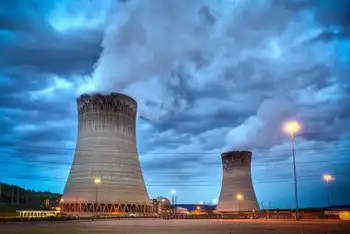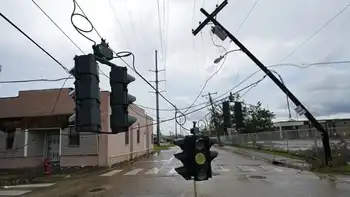Knoxville home powered by solar energy
WEST KNOXVILLE, TENNESSEE - While government grants and tax incentives may favor businesses, homeowners are continuing to get into solar - some of them in a big way.
One local residence, on 17 acres of woodsy hilltop in far West Knoxville, features what its installers believe is the largest photovoltaic array in East Tennessee.
The 14.28-kilowatt system should make the house, owned by Edward and Lynda Primka, close to energy independent thanks to an energy efficiency overhaul of the sprawling 1970s home and the 84, 170-watt panel solar array, said James Harshbarger, account manager with Knoxville-based Sustainable Future, which installed the panels and completed other energy improvements to the property. The system had produced 2,148 kilowatt hours of electricity since its installation in early April.
A 16.5-kilowatt residential system in West Tennessee currently holds the title as largest residential installation in the state, although there's no official tabulation system of solar systems in Tennessee. The Primkas, who wouldn't divulge the total cost of the system, are taking advantage of a 30 percent federal tax credit offered for renewable energy and energy efficiency investments.
However, the decision to adopt solar was personal not financial.
"I would really like our country to do better with renewable energy," said Lynda Primka. "So we wanted to do our part."
She estimated the system would pay for itself in 25 years without the tax credit. The credit, Harshbarger estimated, should reduce that payback by about one-third. According to the Database of State Incentives for Renewables and Efficiency, taxpayers can claim a 30 percent credit and carry any portion beyond the current year's tax liability forward until 2016.
TVA also provides a $1,000 credit for the system, and as part of the agency's Generation Partner program, the Primkas receive 12 cents above the wholesale electricity rate for each kilowatt hour they produce.
Adding a solar system to the house was the final stage of a renovation project that included a number of efficiency improvements that brought the family's electricity consumption down from 10,000 kilowatts per month to between 3,000 and 4,000 kilowatts. The improvements included replacing the home's aging heat pump with a geothermal unit, adding insulation and improving ventilation in the house - solar fans plus foam insulation and a radiant heat barrier were added to the attic to cut the cooling bill.
The Primkas purchased the home just seven years after building their previous home, which did not include the same array of green technologies.
While the builder and architect had experience in energy efficient practices from the energy crisis of the 1980s, they "were very discouraging" about employing them when the couple built the home in 2000, she said.
Less than a decade later, a whole industry has sprung up around sustainability, and the family has become more cognizant of its electricity consumption and, now, their production, she said.
"It does make one think, does the computer wi-fi need to be on when no one's home?" she said. "I think, do I really need this light?"
And each morning, as she walks her two Newfoundlands, Lynda Primka stops by the photovoltaics system's control boxes to check "my kilowatts for the day."
Related News

Nuclear plants produce over half of Illinois electricity, almost faced retirement
CHICAGO - Nuclear plants have produced over half of Illinois electricity generation since 2010, but the states two largest plants would have been retired if the state had not created a zero emission credit (ZEC) mechanism to support the facilities.
The two plants, Quad Cities and Clinton, collectively delivered more than 12 percent of the states electricity generation over the past several years. In May 2016, however, Exelon, the owner of the plants, announced that they had together lost over $800 million dollars over the previous six years and revealed plans to retire them in 2017 and 2018.
In December 2016, Illinois passed the Future Energy Jobs Bill, which established a…




